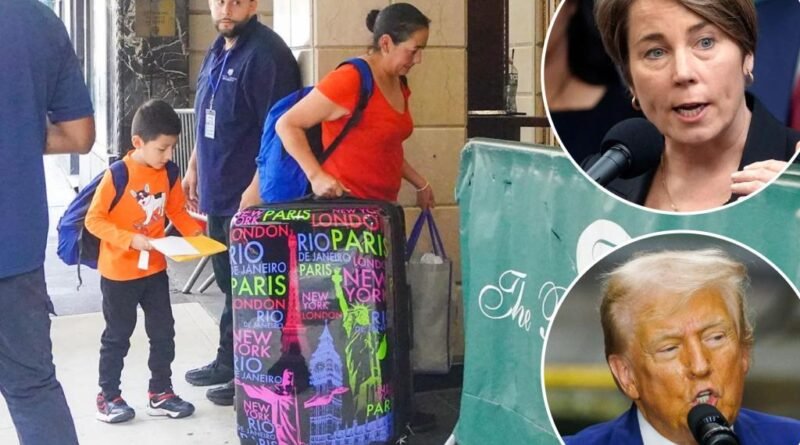Illegal migration is disproportionately impacting the homeless population

The crisis of migrant families in the United States, especially in sanctuary states like Massachusetts and New York, has highlighted another crisis: the neglect of homeless families in America.
Massachusetts Governor Maura Healey has now implemented time limits on homeless families in state shelters to make room for the increasing number of migrant families.
Furthermore, a recent investigation by the Boston Globe revealed that Healey’s administration placed homeless children in hotels with registered sex offenders, a serious accusation they initially denied.
In cities like New York and San Diego in sanctuary states, shelters are full and families are forced to find shelter on unsafe streets.
This situation is horrifying, urgent, and unfortunately, entirely predictable.
The neglect of homeless families began with a 2009 decision by the Department of Housing and Urban Development (HUD), the largest funder of homelessness in the country.
HUD narrowed the federal definition of homelessness, excluding families living “doubled-up” with relatives or friends, as well as those staying in motels for a night. Families who were provided a room by HUD were considered homeless.
This decision led to an undercount of homeless Americans and made them ineligible for the largest public assistance programs.
While HUD reported 653,000 homeless Americans in 2023, the Department of Education documented 1,099,221 homeless K-12 students in the 2020-2021 school year.
This number doesn’t include the students’ parents or siblings outside of the K-12 system.
The consequences of family homelessness will be felt for generations.
Homeless children have a higher risk of addiction, mental illness, and homelessness in adulthood without early intervention.
The latest data from the United States Interagency Council in their 2020 Expanding the Toolbox report show a concerning trend.
Policymakers, especially those in San Diego, should learn from the mistakes made in Massachusetts.
It is crucial not to ignore homeless families and focus on helping them permanently exit homelessness.
Michele, an advocate for homeless families, led a program in Northern California that helped many mothers and children recover and gain life skills.
Officials should invest in creating similar programs to support families struggling with homelessness.
We must not compromise the safety of those experiencing homelessness, as many have already faced extreme violence.
Co-mingling them with registered sex offenders, as seen in Massachusetts, is unacceptable.
We must bring family homelessness out of the shadows and address it with experience, seriousness, and compassion.
Kevin Faulconer is a former mayor of San Diego and a candidate for the San Diego County Board of Supervisors.
Michele Steeb is a visiting fellow at Independent Women’s Forum (iwf.org) and author of “Answers Behind the RED DOOR: Battling the Homeless Epidemic.”




